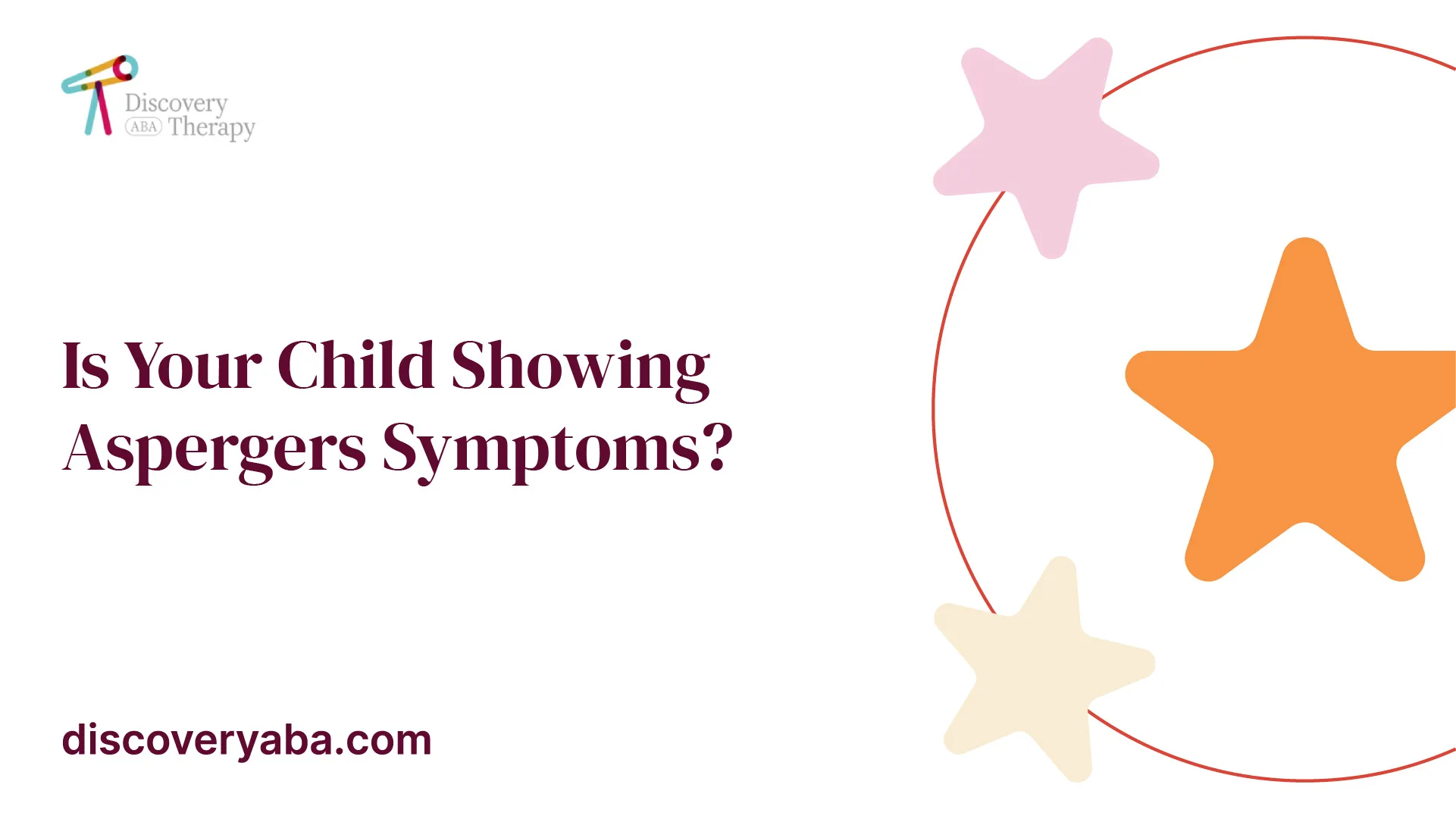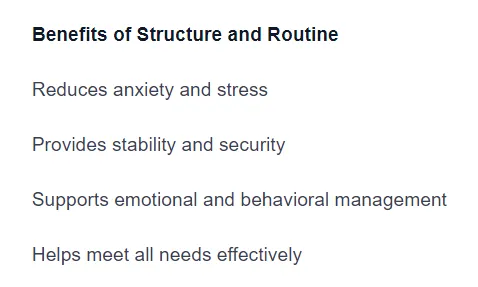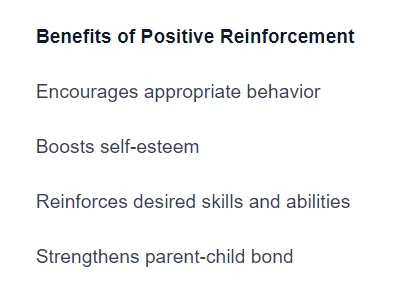Is Your Child Showing Aspergers Symptoms?
Decoding the puzzle of Asperger's symptoms: Is your child showing signs? Seek answers and support here.

Understanding Asperger's Syndrome
Asperger's syndrome is a developmental disorder that affects a child's ability to socialize and communicate effectively with others. It falls under the broader category of autism spectrum disorder (ASD) since the publication of the fifth edition of the Diagnostic and Statistical Manual of Mental Disorders (DSM-5) in 2013. This condition typically manifests in early childhood and can vary in severity.
What is Asperger's Syndrome?
Asperger's syndrome is characterized by difficulties in social interaction and communication. Children with Asperger's syndrome may have trouble making eye contact during conversations, leading to misunderstandings and challenges in social situations. They may also exhibit repetitive behaviors and display a limited range of interests. It's important to note that every child with Asperger's syndrome is unique, and symptoms may vary from person to person.

Common Signs and Symptoms
Recognizing the signs and symptoms of Asperger's syndrome is crucial for early identification and intervention. Some common signs and symptoms include:
- Difficulty making eye contact
- Engaging in one-sided conversations
- Limited range of interests or intense focus on specific topics
- Repetitive patterns of behavior or movements
- Challenges with understanding nonverbal cues, such as body language and facial expressions
- Difficulty with social interactions and forming friendships
- Sensitivity to sensory stimuli, such as certain sounds or textures
It's important to remember that the presence of these signs and symptoms does not necessarily indicate a diagnosis of Asperger's syndrome. Consulting with a healthcare provider is essential for a thorough evaluation and diagnosis. They will assess the child's developmental progress and determine if they may benefit from early intervention services.
Understanding the signs and symptoms of Asperger's syndrome is the first step in supporting a child with this condition. Early diagnosis and intervention can greatly improve social skills, communication abilities, and overall quality of life for children with Asperger's syndrome.
Diagnosing Asperger's Syndrome
Diagnosing Asperger's syndrome involves seeking professional evaluation and obtaining an early diagnosis to facilitate timely intervention and support for the child.
Seeking Professional Evaluation
If parents suspect that their child may have Asperger's syndrome, it is crucial to consult a healthcare provider for a thorough evaluation and diagnosis. Healthcare professionals, such as pediatricians, are often best equipped to evaluate a child's developmental patterns and identify relative strengths and weaknesses. They will consider various factors, including the child's behavior, social interactions, communication skills, and developmental milestones.
During the evaluation process, healthcare professionals may use standardized tests, observation, and developmental screenings to assess the child's social, emotional, and cognitive functioning. These evaluations are typically performed by comparing the child's behavior and development with milestone checklists used for same-age peers. It is important to note that there are no specific blood tests or medical imaging scans for diagnosing Asperger's syndrome.
Early Diagnosis and Intervention
Early diagnosis plays a crucial role in providing appropriate support and interventions for children with Asperger's syndrome. Identifying the condition at an early age allows for timely interventions that can help improve social skills, communication abilities, and overall quality of life. Early intervention focuses on addressing the specific challenges faced by individuals with Asperger's syndrome, including social interactions, communication, and behavioral patterns.
By seeking an early diagnosis, parents can ensure that their child receives the necessary support from healthcare professionals, therapists, and special education resources. These professionals can collaborate with parents to develop individualized strategies that cater to the unique needs of the child.
The combination of seeking professional evaluation and obtaining an early diagnosis allows parents and healthcare professionals to create a comprehensive plan for intervention and support, maximizing the child's potential for development and well-being.
Treatment and Support for Asperger's Syndrome
When it comes to supporting individuals with Asperger's Syndrome, a combination of therapies and interventions can be highly beneficial. Treatment options are aimed at helping individuals improve their social interactions, communication skills, and overall quality of life. The following therapies are commonly used in the treatment and support of individuals with Asperger's Syndrome:
Behavioral Therapy
Behavioral therapy plays a significant role in the treatment of Asperger's Syndrome. This therapy focuses on addressing and modifying behaviors that may be challenging for individuals with the condition. The goal is to help individuals develop appropriate behaviors and improve their social skills. Behavioral therapy often involves structured interventions, rewards systems, and social skills training. It is important to note that therapy for Asperger's Syndrome is not a one-time treatment; repetitive therapy is necessary to help children develop appropriate behaviors.
Speech Therapy
Speech therapy is another crucial component of treatment for individuals with Asperger's Syndrome. It focuses on improving communication skills, including both verbal and non-verbal communication. Speech therapists work with individuals to enhance their language skills, conversation abilities, and understanding of social cues. This therapy can help individuals with Asperger's Syndrome navigate social situations more effectively and improve their overall communication abilities.
Occupational Therapy
Occupational therapy plays a vital role in helping individuals with Asperger's Syndrome develop the necessary skills to live and function independently. Occupational therapists work with individuals to improve their fine motor skills, sensory processing, and daily living skills. This therapy helps individuals develop strategies to manage sensory sensitivities and adapt to different environments. It also assists in developing routines and organizational skills, which can be particularly beneficial for individuals with Asperger's Syndrome.
It's important to note that treatment for Asperger's Syndrome should be tailored to meet the specific needs of each individual. The focus should be on their strengths, encouraging growth in areas of difficulty. While medication is not specifically prescribed for Asperger's Syndrome, certain medications may be used to manage severe symptoms. The potential side effects of medications should be carefully weighed with healthcare providers.
By combining behavioral therapy, speech therapy, and occupational therapy, individuals with Asperger's Syndrome can receive comprehensive support to improve their social interactions, communication skills, and overall well-being. Early intervention is crucial to address challenges and provide individuals with the tools they need to navigate the world around them. With the right treatment and support, individuals with Asperger's Syndrome can lead fulfilling and meaningful lives.
Strategies for Parenting a Child with Asperger's Syndrome
Parenting a child with Asperger's Syndrome requires a unique approach that takes into account their specific needs and challenges. By implementing effective strategies, parents can support their child's development and help them thrive. Here are three key strategies for parenting a child with Asperger's Syndrome:
Creating Structure and Routine
Structure and routine play a crucial role in supporting children with Asperger's Syndrome. Having a consistent schedule helps children know what to expect each day, reducing anxiety and stress associated with unfamiliar situations. It provides a sense of stability and security, allowing the child to better manage their behaviors and emotions on a daily basis.

To create a structured environment, establish daily routines for activities such as waking up, meal times, homework, and bedtime. Use visual aids like calendars or schedules to help your child understand and follow the routine. Breaking tasks into smaller, manageable steps can also make them more achievable for your child.
Positive Reinforcement
Positive reinforcement is an effective tool in parenting children with Asperger's Syndrome. By rewarding appropriate behavior or meeting specific goals with praise or other forms of positive reinforcement, such as treats or special privileges, you can encourage good behavior and improve your child's self-esteem.

When using positive reinforcement, be specific in your praise, focusing on the behavior you want to reinforce. Use clear and concise language to explain why the behavior is desirable. It's important to personalize the rewards to match your child's interests and motivations.
Collaborating with Healthcare Professionals
Seeking guidance and support from healthcare professionals, therapists, and special education resources is crucial in effectively parenting a child with Asperger's Syndrome. These professionals can provide valuable insights, individualized strategies, and resources to support your child's unique needs.
Benefits of Collaborating with Healthcare ProfessionalsAccess to professional expertiseIndividualized strategies and interventionsEmotional support for parentsConnection to community resources
Work closely with healthcare professionals to develop a comprehensive plan that addresses your child's social, emotional, and educational needs. Collaborate with teachers and support staff to ensure that your child receives appropriate accommodations and support in the school environment.
By creating structure and routine, implementing positive reinforcement, and collaborating with healthcare professionals, parents can effectively support their child with Asperger's Syndrome. Remember that each child is unique, so it's important to tailor these strategies to meet your child's specific needs and abilities. With patience, understanding, and support, parents can help their child navigate the challenges and maximize their potential.
Asperger's Syndrome and School
For children with Asperger's syndrome, the school environment can present unique challenges. Understanding and addressing these challenges is crucial to ensure that these children have a positive and inclusive educational experience. In this section, we will explore the challenges in the school environment that children with Asperger's syndrome may face and discuss the importance of Individual Education Programs (IEPs).
Challenges in the School Environment
Children and teenagers with Asperger's syndrome may experience difficulties in the school environment, impacting various aspects of their academic and social lives. Some common challenges they may face include:
- Social interactions: Children with Asperger's syndrome often struggle with social interactions, finding it challenging to understand social cues, engage in reciprocal conversations, and make friends. They may have difficulty understanding and interpreting nonverbal communication, such as body language and facial expressions.
- Sensory sensitivities: Many children with Asperger's syndrome have sensory sensitivities, which can make the school environment overwhelming. They may be highly sensitive to noises, smells, or tastes, leading to sensory overload and difficulties concentrating.
- Executive functioning skills: Executive functioning skills, such as planning, organization, and time management, can be challenging for children with Asperger's syndrome. This can impact their ability to complete assignments, follow schedules, and manage their time effectively.
- Emotional regulation: Children with Asperger's syndrome may struggle with emotional regulation, finding it difficult to manage their emotions and cope with stress or frustration. This can lead to meltdowns or emotional outbursts in the school setting.
Individual Education Programs (IEPs)
To support children with Asperger's syndrome in the school environment, Individual Education Programs (IEPs) can play a crucial role. An IEP is a personalized plan developed for students with special needs, including those with Asperger's syndrome. The goal of an IEP is to provide the necessary accommodations and support to help the child succeed academically and socially.
An IEP is typically created through collaboration between parents, teachers, and other relevant professionals. It outlines specific goals, accommodations, and modifications tailored to the unique needs of the child. The IEP may include strategies to address challenges related to social skills, sensory sensitivities, executive functioning, and emotional regulation.
Some common components of an IEP for a child with Asperger's syndrome may include:
- Social skills training: Including targeted interventions and supports to enhance social interactions, perspective-taking, and understanding social cues.
- Academic accommodations: Providing appropriate modifications or alternative assignments to address challenges with executive functioning, attention, and organization.
- Sensory supports: Implementing strategies to minimize sensory overload, such as providing a quiet space for breaks or using noise-canceling headphones.
- Emotional regulation strategies: Incorporating techniques to help the child manage their emotions, such as implementing a visual schedule or using relaxation techniques.
By implementing an IEP, schools can create a supportive and inclusive environment for children with Asperger's syndrome. This personalized plan ensures that the child's unique needs are recognized and addressed, enabling them to thrive academically and socially.
Understanding the challenges in the school environment and utilizing the benefits of Individual Education Programs (IEPs) are key steps towards providing appropriate support for children with Asperger's syndrome. By fostering understanding, patience, and collaboration between educators, parents, and healthcare professionals, we can create an environment where all children can reach their full potential.
Living with Asperger's Syndrome
Living with Asperger's Syndrome presents unique challenges and requires appropriate coping strategies, non-surgical treatment options, and supportive therapies to help individuals with the condition lead fulfilling lives.
Coping with Symptoms and Challenges
Asperger's Syndrome is a developmental disorder that affects a person's ability to socialize and communicate effectively with others. Symptoms of Asperger's Syndrome can vary widely in severity and may include difficulty making eye contact, engaging in one-sided conversations, having a limited range of interests, and repeating the same patterns of behavior.
Coping with these symptoms and challenges requires a multi-faceted approach. Here are some strategies that can help:
- Social Skills Training: Social skills training can be beneficial for individuals with Asperger's Syndrome. This type of therapy focuses on teaching specific social skills and helping individuals develop strategies to navigate social interactions more effectively.
- Emotional Regulation Techniques: Learning techniques to manage and regulate emotions can be helpful for individuals with Asperger's Syndrome. These techniques may include deep breathing exercises, mindfulness, or engaging in activities that provide a sense of calm and relaxation.
- Support Systems: Building a strong support system is crucial for individuals with Asperger's Syndrome. This can include family, friends, support groups, and professionals who can provide guidance, understanding, and assistance when needed.
Non-Surgical Treatment Options
Although there is no cure for Asperger's Syndrome, non-surgical treatment options can help individuals manage their symptoms and improve their quality of life. These options include:
- Behavioral Therapy: Behavioral therapy focuses on modifying behavior patterns and teaching new skills. It can help individuals with Asperger's Syndrome develop appropriate social and communication skills, as well as manage challenging behaviors.
- Speech Therapy: Speech therapy can be beneficial for individuals with Asperger's Syndrome who have difficulties with speech and language. This therapy aims to improve communication skills, including verbal and nonverbal communication.
- Occupational Therapy: Occupational therapy focuses on developing skills needed for daily living, such as self-care, fine motor skills, and sensory integration. It can help individuals with Asperger's Syndrome improve their independence and function more effectively in various environments.
Supportive Therapies
In addition to non-surgical treatments, supportive therapies can play a crucial role in managing Asperger's Syndrome. These therapies aim to provide individuals with the tools and support they need to navigate daily life. Some common supportive therapies include:
- Social Skills Groups: Social skills groups provide a structured environment for individuals with Asperger's Syndrome to practice and improve their social interactions. These groups often focus on specific skills, such as initiating conversations, maintaining eye contact, and understanding nonverbal cues.
- Cognitive-Behavioral Therapy (CBT): CBT helps individuals with Asperger's Syndrome identify and modify negative thought patterns and behaviors. It can assist in managing anxiety, improving problem-solving skills, and enhancing overall emotional well-being.
- Parent Training and Education: Parents of children with Asperger's Syndrome may benefit from training and education programs that provide guidance on effective parenting techniques, strategies for managing challenging behaviors, and resources for accessing appropriate support services.
By implementing coping strategies, utilizing non-surgical treatment options, and accessing supportive therapies, individuals with Asperger's Syndrome can enhance their social and communication skills, manage challenges, and improve their overall quality of life. It is important to remember that each individual is unique, and the treatment plan should be tailored to their specific needs and strengths.
Asperger's Syndrome vs. Autism Spectrum Disorder
When discussing Asperger's Syndrome, it is important to understand its relation to Autism Spectrum Disorder (ASD). In 2013, the Diagnostic and Statistical Manual of Mental Disorders (DSM-5) reclassified Asperger's Syndrome as a part of the broader category of Autism Spectrum Disorder. This change aimed to provide a more comprehensive understanding of these conditions and promote consistent diagnoses and treatment approaches [1].
Understanding the Relation
Asperger's Syndrome, previously known as high-functioning autism, is now categorized under Autism Spectrum Disorder. Individuals with ASD often face challenges in socializing, have a narrow range of interests, adhere to rigid routines, and exhibit repetitive behaviors. The inclusion of Asperger's Syndrome within the umbrella term of ASD allows for a more comprehensive understanding of the spectrum of autism-like disorders.
Characteristics and Differences
Asperger's Syndrome, as a form of Autism Spectrum Disorder, is characterized by impaired language and communication skills, along with repetitive or restrictive thinking and behavior. Individuals with Asperger's typically have high intelligence and no speech delays but may exhibit differences in play, learning, speech, and behavior when compared to their peers.
Children and teens with Asperger's Syndrome may struggle with social interactions, have difficulty understanding nonverbal cues like body language and sarcasm, and display intense focus on specific topics or activities. These intense interests can become obsessive and interfere with daily life.
While the specific characteristics may vary among individuals, the common thread between Asperger's Syndrome and other forms of Autism Spectrum Disorder is the presence of challenges in social communication and interaction. However, it is important to note that each individual with ASD is unique, and their experiences and needs may differ.
Understanding the relationship between Asperger's Syndrome and Autism Spectrum Disorder allows for a better grasp of the broader spectrum of conditions. This knowledge can help individuals seek appropriate support, interventions, and resources to enhance their overall well-being and quality of life.
References
- https://www.healthline.com/health/autism/aspergers-treatment
- https://www.webmd.com/brain/autism/mental-health-aspergers-syndrome
- https://familydoctor.org/condition/aspergers-syndrome/
- https://my.clevelandclinic.org/health/diseases/6436-asperger-syndrome
- https://activebeat.com/your-health/children/how-to-support-a-child-with-aspergers-syndrome/
- https://northlandchildpsychiatry.com/how-to-parent-a-child-with-asperger-syndrome
- https://www.nationwidechildrens.org/conditions/aspergers-syndrome
Does Your Child Have An Autism Diagnosis?
Learn More About How ABA Therapy Can Help
Find More Articles
Contact us
North Carolina, Nevada, Utah, Virginia
New Hampshire, Maine
Arizona, Colorado, Georgia, New Mexico, Oklahoma, Texas
.avif)




































































































